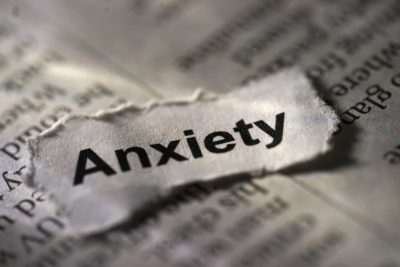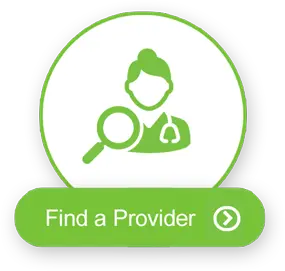
Worries that wake you at night.
A heart that threatens to pound out of your chest.
Are these feelings you face from time to time? Do you dismiss them as temporary symptoms or question if it’s something more?
If you’re wondering: “do I have anxiety?” it might be helpful to look at symptoms of anxiety disorders to know if and when to see a mental health professional.
When anxiety is diagnosable
“Anxiety in itself is not bad,” says Luana Marques, Ph.D., on the Harvard Health Blog. “Symptoms of normal anxiety do not negatively interfere with daily functioning. They may actually improve your attention and problem-solving, motivate you to work harder toward a goal, or warn you about a potential threat.”
For example, worrying you might flunk your final exams in college could motivate you to study harder, which could result in you earning a higher grade. However, if exams are over and the worry hasn’t alleviated – in fact, if it becomes pervasive, unproductive and more consistent, an anxiety disorder may be present.
“Diagnosable anxiety disorders occur when anxiety levels rise enough to rapidly decrease performance and cause impairment,” explains Dr. Marques.
Recognizing common symptoms

The Mayo Clinic notes that, “these feelings of anxiety and panic interfere with daily activities, are difficult to control, are out of proportion to the actual danger and can last a long time.”
So, what does it feel like on a day-to-day basis? The Mayo Clinic outlines some of the mental, emotional and physical symptoms you might experience:
Feeling afraid, anxious or on edge.
According to the Mayo Clinic, you might feel “nervous, restless or tense” and/or have “a sense of impending danger, panic or doom.” “Everybody has a day or two that are bad, everybody has a day with symptoms that are triggered by something that’s going on in your life,” says psychiatrist Jessi Gold, M.D., M.S., in SELF magazine. “But do you have reactions that are out of proportion to ‘normal’ anxiety? … Are you having trouble relaxing?”
Having trouble concentrating or worrying too much.
You might have a hard time concentrating or thinking about anything other than your present worry. If you’re having financial problems, for example, you might find you can’t stop or control worrying about it even when doing unrelated tasks.
Avoiding everyday situations that trigger anxiety.
You might start to avoid certain places or situations because of your fears. While it’s common to sometimes feel this way, take notice if it begins to negatively impact your life. “You may dread getting a medical test because of what you could learn,” says psychologist Anne Marie Albano, Ph.D., in Time magazine. “But if you’re avoiding going to your doctor at all because of it, that’s a problem.”
Experiencing physical symptoms.
According to the Mayo Clinic, you may also feel anxiety symptoms in your body, including:
- “Having an increased heart rate
- Breathing rapidly (hyperventilation)
- Sweating
- Trembling
- Feeling weak or tired
- Having trouble sleeping
- Experiencing gastrointestinal (GI) problems”
Types of anxiety disorders
Different anxiety disorders share similar but distinct symptoms, according to the National Institute of Mental Health. According to the U.S. Department of Health and Human Services, there are five major types of anxiety disorders:
- Generalized Anxiety Disorder (GAD). It is “characterized by chronic anxiety, exaggerated worry and tension, even when there is little or nothing to provoke it.”
- Obsessive-Compulsive Disorder (OCD). This disorder is “characterized by recurrent, unwanted thoughts (obsessions) and/or repetitive behaviors (compulsions).” A person may repeatedly – and often uncontrollably – engage in “rituals” to try to make the obsessive thoughts go away, but it “provides only temporary relief, and not performing them markedly increases anxiety.”
- Panic Disorder. A person with panic disorder often has “unexpected and repeated episodes of intense fear accompanied by physical symptoms that may include chest pain, heart palpitations, shortness of breath, dizziness, or abdominal distress.”
- Post-Traumatic Stress Disorder (PTSD) may develop “after exposure to a terrifying event or ordeal in which grave physical harm occurred or was threatened.” While many may think of PTSD only impacting people who served in the military, PTSD can affect people who survive assaults, accidents or natural disasters.
- Social Phobia, or Social Anxiety Disorder, can impact people in social situations – like “fear of speaking in formal or informal situations, or eating or drinking in front of others.”
If you are concerned you may have an anxiety disorder, an honest talk with your healthcare professional can go a long way. And there’s good news: anxiety is treatable.
Options for getting help
Early diagnosis and treatment can be beneficial.

Additionally, the Mayo Clinic notes that, “the two main treatments for anxiety disorders are psychotherapy and medications. You may benefit most from a combination of the two. It may take some trial and error to discover which treatments work best for you.”
Certain tests may inform a healthcare provider about how your genes may impact your metabolism or response to certain medications commonly used to treat depression, anxiety, ADHD, and other mental health conditions. The GeneSight® test is one such test, and it must be ordered by a clinician who prescribes medication. The results of the GeneSight test are intended to supplement other clinical factors considered by a clinician during a comprehensive medical assessment.
Persistent anxiety or excessive anxiety doesn’t have to rule your days. It’s OK to reach out for help and get treatment when you need it – your mental health is worth it.
For more information about these topics, please visit:
https://genesight.com/blog/patient/covid-anxiety-survey-finds-some-wont-seek-treatment/
https://genesight.com/blog/patient/understanding-depression-and-anxiety/
Our articles are for informational purposes only and are reviewed by our Medical Information team, which includes PharmDs, MDs, and PhDs. Do not make any changes to your current medications or dosing without consulting your healthcare provider.
The GeneSight test must be ordered by and used only in consultation with a healthcare provider who can prescribe medications. As with all genetic tests, the GeneSight test results have limitations and do not constitute medical advice. The test results are designed to be just one part of a larger, complete patient assessment, which would include proper diagnosis and consideration of your medical history, other medications you may be taking, your family history, and other factors.
If you are a healthcare provider and interested in learning more about the GeneSight test, please contact us at 855.891.9415. If you are a patient, please talk with your doctor to see if the GeneSight test may be helpful.






